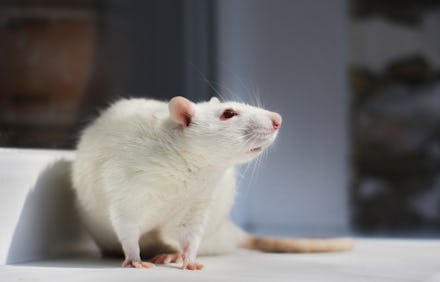Japanese scientists will start trying to grow human pancreases in mice

Researchers from the University of Tokyo have become the first in the island nation to receive permission to conduct a study that aims to grow human pancreases in rodents. Until recently, regulators in Japan banned the practice of bringing animal-human hybrid embryos to term beyond 14 days. But now the Ministry has lifted the restrictions, allowing for studies to take small steps toward advancing this technology.
It's a study that's been 10 years in the making, said Hiromitsu Nakauchi, one of the participating researchers.
"We don’t expect to create human organs immediately," he told The Asahi Shimbun, a Japanese newspaper, "but this allows us to advance our research based upon the know-how we have gained up to this point."
The scientists plan to do this by relying on human induced pluripotent stem (iPS) cells, which are skin or blood cells that were turned back into an embryonic-like state for use in medical stem cell treatments. According to The Asahi Shimbun, the researchers' first step will be manipulating the genes of fertilized mice and rat eggs. This will halt the eggs' ability to make a pancreas. Then, the team will substitute the human iPS cells into the eggs, spurring the eggs into using those cells to create a pancreas, and making 'animal-human embryos' that will develop into baby rodents with human pancreases.
According to a Nature report, Nakauchi doesn't plan on rushing through this experiment. He will monitor the growth of the organs in all the embryos, starting with mice before moving on to rats, and ensuring no human cells develop in the brains of the rodents. His team will develop the rodents to near-term first, then try for a live birth later. If that works, then they will spend two years monitoring the rats' growth after their birth.
"We are trying to do targeted organ generation, so the cells go only to the pancreas," he said to Nature.
If the scientists detect more than 30 percent of human cells in the brains, then they will pause the experiment due to ethical concerns. But if all goes well, he hopes he can eventually apply for approval to grow hybrid pig embryos and other similar studies to create human livers and kidneys.
Although it sounds like a mad science experiment, there is a very specific reason behind developing this sort of stem cell technology. Researchers have been looking into studies like this to potentially grow human organs in animals, like pigs, for organ transplants. According to UCI Health, about 20 people die per day waiting for an available organ for transplant.
But bioethicists worry about the consequences of trying to blend human and animal cells in one creature's body. If human cells move into the animal's brain, it could alter its cognitive ability — making an animal that can think like a human. The ethics of creating and harvesting from a creature like that is alarming to them and other skeptics, including U.S. agencies such as the National Institutes of Health (NIH). Although this type of research is allowed in the U.S., the NIH refuses to fund any studies.
It's a conversation that the scientific and medical community needs to sit down and talk about. Gizmodo addressed this concern in 2017 with medical ethicist Carolyn Neuhaus.
"I don’t think they’d be worse morally from how we raise pigs for meat," Neuhaus said at the time, "but my hunch is that the way to raise pigs to retrieve organs would require a departure from the way pigs are raised [for research]."
Still, it's a conversation that could be a long ways off. Scientists are currently nowhere near the possibility of creating human organ farms. Nature noted that Nakauchi and his team had previously attempted to put human iPS cells into sheep embryos without pancreases. The embryos grew for 28 days, but failed to develop anything that could even resemble human organs.